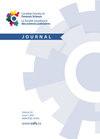Les paramètres clés de l’interprétation des fibres textiles en sciences criminelles. Partie II: Transfert, persistance et détection
IF 0.2
Q4 MEDICINE, LEGAL
Canadian Society of Forensic Science Journal
Pub Date : 2018-10-02
DOI:10.1080/00085030.2018.1519769
引用次数: 6
Abstract
Abstract Determining the probative value of trace evidence is essential in major criminal investigations. However, this can often be difficult when the significance of the results of a particular examination have to be evaluated within the context of the framework of circumstances of a specific case. This is particularly true in criminal investigations where it is necessary to evaluate the significance of a non-differentiation between fibres from a crime scene (or a crime-related item) with a source belonging to a suspect. By employing an approach involving a probabilistic Bayesian framework, it is possible to evaluate the significance of the results of an examination by considering a set of alternative propositions relating to the alleged activity in question. In such circumstances, it is crucial that any such evaluation is carried out at activity level, since transfer and persistence of textile material may be due to an activity not related to the alleged criminal action under consideration. This article reviews the literature on the detection, transfer and persistence of textile fibres since the understanding of these three concepts is essential for the robust assessment of activity level propositions. In addition, some complex casework scenarios are discussed, including secondary transfer phenomena and the transfer of fibres during domestic violence. Finally a section dedicated to the simulation of criminal and ‘legitimate’ activities involving fibre transfer is considered, which illustrates the importance of evaluating activity level propositions using data derived from conditions as close as possible to the framework of circumstances of the actual case under consideration.刑事科学中解释纺织纤维的关键参数。第二部分:传输、持久性和检测
摘要在重大刑事侦查中,确定微量证据的证明价值是必不可少的。但是,当必须在具体案件的情况框架内评价特定检查结果的重要性时,这往往是困难的。在刑事调查中尤其如此,因为有必要评估来自犯罪现场(或与犯罪有关的物品)的纤维与属于嫌疑人的来源之间不区分的重要性。通过采用涉及概率贝叶斯框架的方法,可以通过考虑与所述活动有关的一组替代命题来评估检查结果的重要性。在这种情况下,至关重要的是在活动一级进行任何这种评价,因为纺织材料的转移和滞留可能是由于与正在审议的所指控的犯罪行为无关的活动造成的。本文回顾了关于纺织纤维的检测,转移和持久性的文献,因为这三个概念的理解对于活动水平命题的稳健评估至关重要。此外,还讨论了一些复杂的案例情景,包括家庭暴力期间的二次转移现象和纤维转移。最后,考虑了一节专门讨论涉及纤维转移的刑事和“合法”活动的模拟,这说明了使用尽可能接近所审议的实际案件的情况框架的条件得出的数据来评估活动水平命题的重要性。
本文章由计算机程序翻译,如有差异,请以英文原文为准。
求助全文
约1分钟内获得全文
求助全文

 求助内容:
求助内容: 应助结果提醒方式:
应助结果提醒方式:


